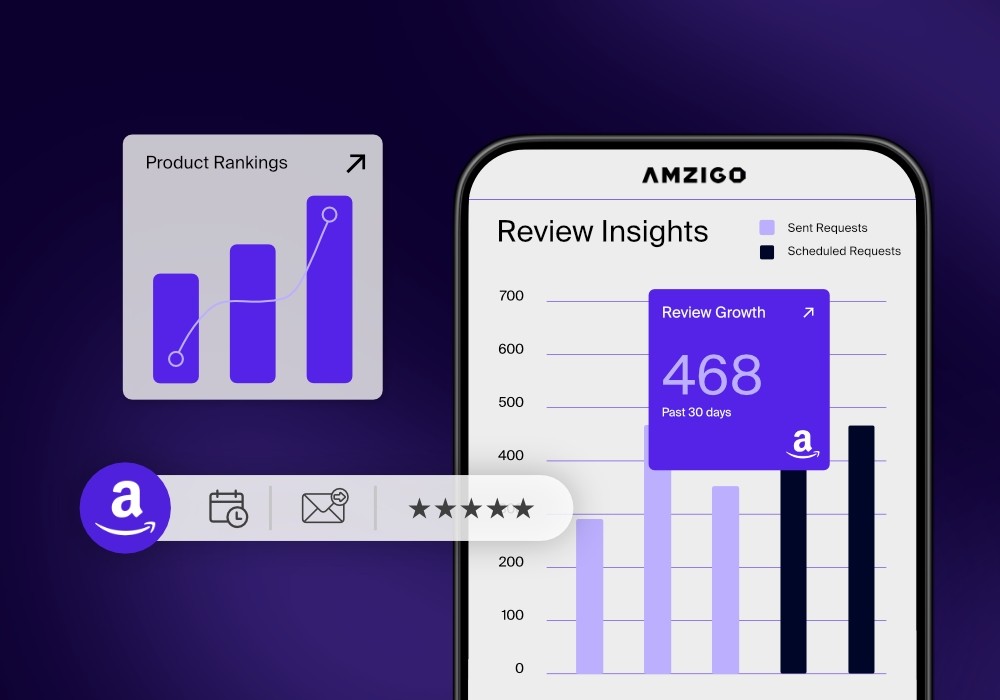Diversifying your e-commerce presence beyond Amazon can significantly enhance your business’s resilience, visibility, and revenue streams.
This guide explores the benefits of expanding to other platforms, highlights top alternative e-commerce channels, and provides actionable strategies to effectively broaden your e-commerce footprint.
Benefits of Expanding Beyond Amazon
Relying solely on Amazon can pose risks and limitations. Diversifying your e-commerce business offers several advantages:
- Risk Mitigation: Reduces dependency on Amazon, protecting your business from sudden policy changes, account suspensions, or increased competition.
- Increased Visibility: Reaches a broader audience by leveraging multiple sales channels, enhancing brand recognition and customer base.
- Enhanced Brand Control: Provides more control over branding, customer interactions, and marketing strategies, allowing for a more personalized customer experience.
- Diverse Revenue Streams: Creates multiple income sources, stabilizing revenue fluctuations and increasing overall business resilience.
Top Alternative Ecommerce Platforms
Exploring new platforms can help you reach different customer segments and diversify your revenue streams:
Shopify
- User-Friendly: Intuitive interface suitable for all skill levels, making it easy for beginners to set up and manage their stores.
- Customization: Extensive customization options with themes and plugins to tailor your store to your brand's unique needs.
- Integration: Seamlessly integrates with Amazon, social media, and other sales channels, facilitating multichannel sales.
- Statistics: 36% of Amazon sellers plan to expand to Shopify in 2024, indicating its popularity and growth potential.
Walmart Marketplace
- High Traffic: Attracts millions of visitors, offering significant exposure to a diverse customer base.
- Reputation: Benefits from Walmart’s strong brand reputation, instilling trust in potential customers.
- Low Competition: Less saturated compared to Amazon, providing better visibility for new products.
- Expansion Plans: 41% of enterprise brands plan to expand to Walmart in 2024, showcasing its potential for growth.
eBay
- Global Reach: Access to international markets with a well-established platform, enabling global sales.
- Diverse Product Categories: Suitable for a wide range of products, from collectibles to electronics.
- Auction Format: Unique auction-style listings can attract different buyer segments, increasing sales opportunities.
- Seller Statistics: 33% of Amazon sellers plan to expand to eBay in 2024, highlighting its relevance.
Etsy
- Niche Market: Ideal for handmade, vintage, and craft products, catering to a specific audience looking for unique items.
- Community Engagement: Strong community of buyers interested in unique and custom items, fostering a loyal customer base.
- Personalized Storefronts: Allows for personalized branding and customer engagement, enhancing the shopping experience.
- Seller Expansion: 22% of Amazon sellers plan to expand to Etsy in 2024, indicating its niche appeal.
TikTok Shop
- Social Commerce: Leverages the growing trend of social media shopping, reaching younger, tech-savvy consumers.
- Engagement: High user engagement rates, particularly among younger demographics, making it ideal for viral marketing.
- Innovative Marketing: Utilizes video content for product promotion and direct sales, driving higher conversion rates.
- Expansion Interest: 20% of Amazon sellers plan to expand to TikTok Shop in 2024, reflecting its emerging potential.
Strategies for Successful Expansion
Expanding your ecommerce business requires strategic planning and execution:
- Market Research: Conduct thorough market research to understand the target audience, market trends, and competitive landscape of the new platform.
- Platform Optimization: Tailor your product listings, descriptions, and keywords to fit the new platform’s search algorithms and user preferences, ensuring better visibility and sales.
- Brand Consistency: Maintain consistent branding across all platforms to build a recognizable and trusted brand, ensuring a cohesive customer experience.
- Marketing and Advertising: Invest in platform-specific advertising and promotional strategies to drive traffic and sales, leveraging each platform's unique features and audience.
- Customer Service: Ensure high-quality customer service to build trust and encourage repeat business, adapting to the customer service norms of each platform.
Leveraging Tools for Multichannel Management
Managing multiple sales channels can be challenging. Leveraging e-commerce tools can streamline operations and improve efficiency:
- Multichannel Management Software: Tools like ChannelAdvisor and Sellbrite can help manage inventory, orders, and listings across multiple platforms, reducing manual effort and errors.
- Data Analytics: Utilize data analytics tools to monitor performance, track sales, and optimize marketing strategies, providing insights for informed decision-making.
- Customer Relationship Management (CRM): Implement a CRM system to manage customer interactions, support, and retention across all channels, enhancing customer satisfaction and loyalty.
Conclusion
Expanding your e-commerce business beyond Amazon can significantly enhance your growth potential and business stability. By leveraging multiple platforms, employing strategic expansion techniques, and utilizing effective management tools, you can build a more resilient and successful e-commerce business.
Looking to take your Amazon business to the next level?
Discover how Amzigo's advanced features, like our Automated Review Centre, Product Analysis, and Inventory Management, can transform your selling experience. Check out our features and try it for free!



